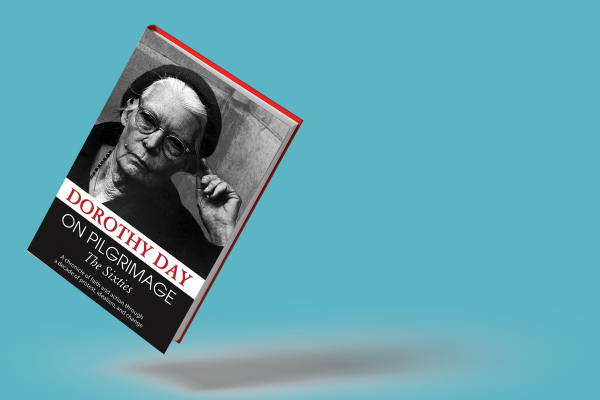LOVE IS LACED liberally through this compendium, skillfully edited by Robert Ellsberg, of Dorothy Day’s monthly columns from The Catholic Worker, the newspaper of the movement Day co-founded. Love for God, especially as it lives in the poor whose burdens of poverty she tried to share, shines through Day’s accounts of her travels and her life at the Catholic Worker houses of hospitality in New York and the community’s farms. Seeing examples of living love seems even more important today as our country faces the same problems as in the ’60s: racism, poverty in a land of plenty, and endless wars that consume needed resources.
Day writes of these issues, but love as lived through acts of mercy is what unites the essays. She describes Catholic Worker houses of hospitality across the country where, daily, the hungry are fed, the naked are clothed, the dead are mourned and buried, and the sick and the imprisoned are visited. In these essays, these acts are presented in opposition to works of war and racism. She documents that the latter are fueled by an out-of-control U.S. military whose expenditures rob the poor.
Coming in for special notice are prisoners of conscience, Day’s colleagues who are imprisoned for resisting the draft that fueled the Vietnam War, including, in 1968, burning draft files in Catonsville, Md., and Milwaukee, in nonviolent destruction of what Jesuit priest Dan Berrigan called “improper property.” These nonviolent trespasses against the law by the anti-war and civil rights movements were in obedience to God’s laws. After several good recent biographies of Day, reading again the words that first introduced me to the Catholic Worker movement brought back memories of those days when Day helped so many commit to nonviolence as a way to make a world where, as her mentor Peter Maurin would say, “it’s easier for people to be good.”
Read the Full Article

